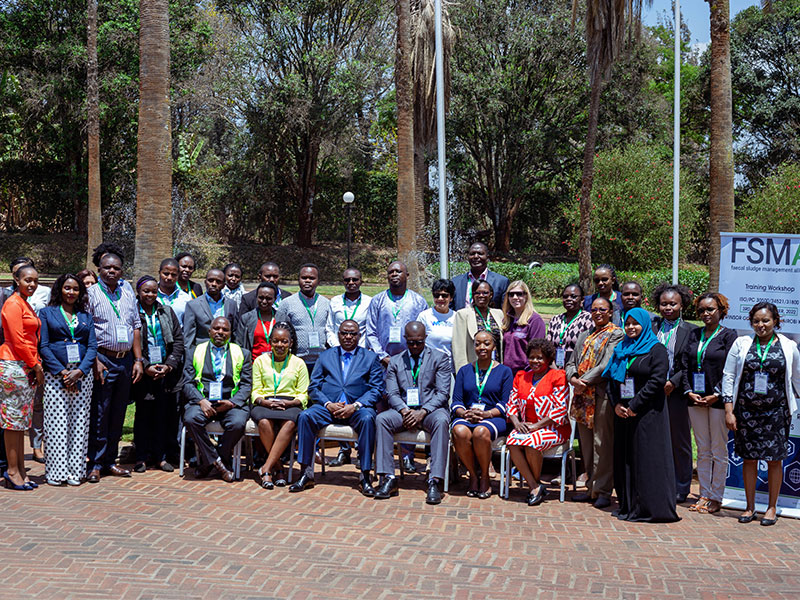International Standards are formulas that define the best way to do something be it making a product, delivering a service, or supplying materials. The International Standards Organization (ISO) is an independent, non-governmental international organization comprising 167 national standards bodies that develops voluntary, consensus-based, market-relevant international standards to support innovation and provide solutions to global challenges.
On the 3rd and 4th of October 2022, the Fecal Sludge Management (FSM) Alliance launched the First Innovative Sanitation Solutions Workshop at the Windsor Golf Hotel and Country in Nairobi, Kenya. The Workshop provided training and instruction on ISO 30500 (Non-sewered sanitation systems), ISO 24521 (Activities relating to drinking water and wastewater services), and ISO 31800 (Fecal Sludge Treatment Units).







The event kicked off with a keynote address by the Deputy Governor of Nairobi City County, His Excellency Njoroge Muchiri, where the County boss reiterated his support for the initiative that would improve fecal sludge management (FSM) and construction of non-sewered structures in the Country.
The workshop was attended by representatives from the national government, county governments, civil society/NGOs, private sector sanitation actors, and a host of professionals within the sanitation, water, construction, and public health space.
The workshop heralds a new phase in Kenya’s quest for SDG 6.2 (Access to sanitation) in a country where almost 98% of the built environment uses non-sewered sanitation systems (not connected to sewer networks or systems). Mainstreaming best practices and standards in non-sewered sanitation systems is crucial to protecting the environment, particularly unprotected groundwater which is a source of water for over 36% of Kenyans.
Adopting ISO 30500, ISO 24521, and ISO 31800 as best practices within the sanitation industry in Kenya will significantly reduce compromises to environmental safety brought about by unsustainable practices, and sub-standard sanitation structures.

